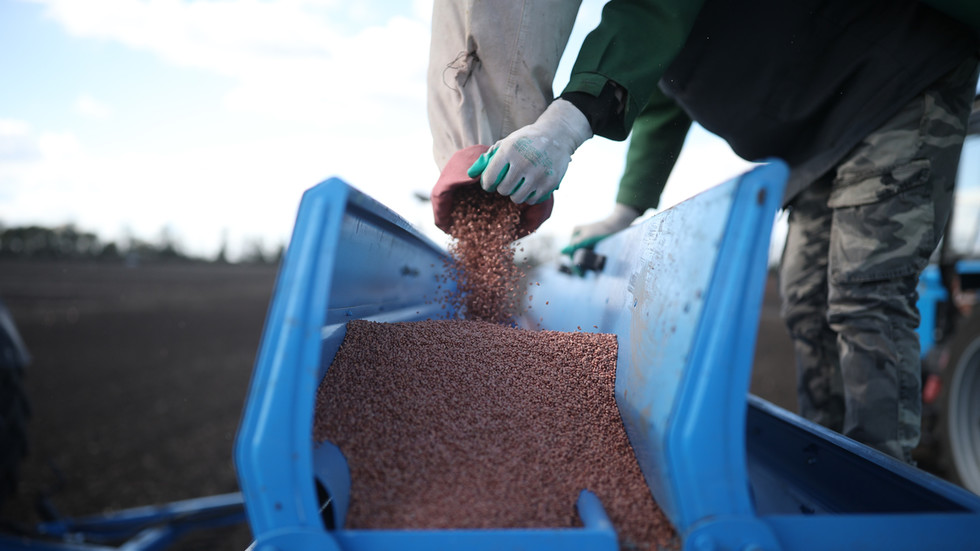
The first batch of humanitarian aid, consisting of 25,000 tons of grain, has arrived in Somalia

FILE PHOTO. © Vitaly Timkiv; RIA Novosti
Russia has started sending the first batches of free grain to struggling African nations under a deal announced by Russian President Vladimir Putin earlier this year. This week, Somalia became the first to receive a shipment of 25,000 tons of grain.
The Russian grain promise The delivery comes as part of an agreement announced by the Russian president during the Russia-Africa summit in St Petersburg back in July. During the event, Putin promised to provide food assistance to a number of African nations free of charge after the UN-brokered Black Sea grain deal fell through.
In his pledge, the Russian leader stated that Burkina Faso, Zimbabwe, Mali, Somalia, Central African Republic, and Eritrea would each receive up to 50,000 tons of grain from Russia and that they would be completely free of charge.
Russian Agriculture Minister Dmitry Patrushev has said that Moscow expects to deliver a total of 200,000 tons of free grain to Africa by the end of the year.
More shipments Russia has also provided free fertilizer shipments to several other countries. The director of the Russian Foreign Ministry’s Second Commonwealth of Independent States (CIS) Department, Aleksey Polischuk, stated last month that Moscow, together with the UN World Food Program, had sent 20,000 tons of fertilizer to Malawi, 34,000 tons to Kenya and was waiting for approval of an additional 23,000 to Zimbabwe, 34,000 tons to Nigeria, and 55,000 tons to Sri Lanka.
READ MORE: Russia sends free grain to two African countries
The Black Sea grain deal Russia’s move to send free food aid to Africa came after it unilaterally withdrew from the so-called Black Sea Grain Initiative earlier this year. The deal, which was initially brokered by the UN and Türkiye in July 2022, was meant to facilitate the export of Ukrainian grain, such as wheat, corn and sunflower products, to world markets, primarily to poorer countries, such as those in Africa.
In exchange for allowing the shipments of Ukrainian grain, Moscow was promised that Western sanctions would be lifted from its own agricultural exports.
However, a year after it was struck, Russia abandoned the deal, arguing that it was still unable to get any of its grain or fertilizer out to world markets, and that the West had completely ignored its end of the bargain.
Additionally, Moscow noted that more than 70% of the shipments under the initiative had failed to reach poor countries and were instead delivered to wealthy nations.
Russia accuses West of hoarding agricultural goods Aside from blocking Russian agricultural exports, Russia claimed that Western countries have been hoarding Russian fertilizer that had become stuck in EU ports. Russia’s Foreign Ministry claimed in October that over 96,000 tons of fertilizer intended as free humanitarian aid for poor African nations were being held up in ports in Latvia, Estonia, Belgium, and the Netherlands.
Moscow described the situation as “yet another example of the hypocrisy of Western countries,” noting that despite saying there were no sanctions applied to Russian agricultural exports, Brussels was blocking “even purely humanitarian, free deliveries” of Russian supplies.
Revival of the Black Sea Initiative Meanwhile, the UN has been attempting to revive the Ukrainian grain deal but so far to no avail. Russian Ambassador to Türkiye Aleksey Erkhov has explained that the efforts to restart the initiative have been “fruitless” because the West has continued to impose sanctions on Russian food and fertilizer.




